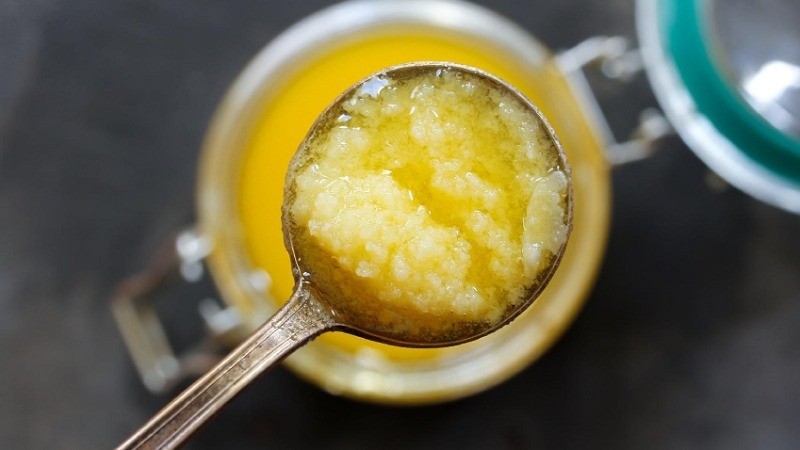
When it comes to cooking and health, ghee has long been a staple in many cultures, particularly in India. Among the varieties, cow ghee and buffalo ghee are two of the most popular options, each with its own unique characteristics and health benefits. Here’s a comprehensive look at how they compare, helping you make an informed choice for your kitchen and well-being.
1. Color: A Visual Distinction
One of the easiest ways to differentiate between cow ghee and buffalo ghee is by their color. Cow ghee typically has a rich yellow hue, attributed to the presence of beta-carotene, a pigment found in the grass and fodder consumed by cows. In contrast, buffalo ghee is often white or cream-colored. This color difference not only helps in identification but also hints at the nutritional compositions of these two types of ghee.
2. Nutritional Powerhouse
Cow ghee is often hailed as a nutritional powerhouse. It is rich in vitamins (A, D, E, and K), essential minerals, and antioxidants, making it beneficial for both skin and hair health. Its nutrient profile supports overall well-being, promoting vitality and strength.
On the other hand, buffalo ghee is also nutritious but tends to be higher in fats. While it contains calcium, magnesium, and phosphorus, its benefits might not match those of cow ghee, particularly when it comes to skin and hair nourishment.
3. Digestive Ease
When it comes to digestibility, cow ghee takes the lead. It contains a lower fat content and higher levels of volatile and soluble acids, making it easier on the stomach and promoting gut health. This is particularly important for those who may have digestive sensitivities. Buffalo ghee, with its higher fat content, may be more challenging for some people to digest.
4. Shelf Life: Durability Matters
The higher fat content in buffalo ghee grants it a longer shelf life compared to cow ghee. If you're looking for a ghee that can last longer without spoiling, buffalo ghee might be the preferable choice. However, for those who prioritize quality and nutritional value over shelf life, cow ghee is worth the shorter shelf life.
5. Milk to Ghee Ratio: The Cost Factor
The cost of ghee can also vary significantly based on the milk-to-ghee ratio. Buffalo milk typically produces more ghee than cow milk, making buffalo ghee generally more affordable. However, the higher price of cow ghee reflects its premium quality and the intensive processes involved in its production.
6. Fitness Quotient: Gaining vs. Maintaining Weight
For those managing their weight, cow ghee has notable advantages. It contains conjugated linoleic acid (CLA), which helps boost metabolism and regulate insulin levels, making it a suitable option for weight management. Buffalo ghee, on the other hand, has a higher fat content, making it an excellent choice for those looking to gain weight or requiring higher energy.
7. Ayurvedic Applications: A Healing Tradition
In Ayurveda, cow ghee is often preferred for its numerous medicinal properties. It is utilized in various treatments, including the ‘Nasya Treatment’, where ghee is used as nasal drops to address conditions like migraines, tension headaches, and even memory issues. Buffalo ghee lacks this broad spectrum of applications in Ayurvedic practices.
8. Best for Children: Nourishment vs. Activity Levels
Cow ghee is considered safe and beneficial for all age groups, particularly children. Its nutrient-rich profile supports growth and development while helping to prevent obesity and various health issues. Conversely, buffalo ghee is better suited for physically active individuals, making cow ghee the go-to option for families with children.
Choosing the Right Ghee for You
Incorporating ghee into your daily diet can offer a plethora of health benefits, enhancing your skin, hair, and overall well-being. Both cow ghee and buffalo ghee have their unique advantages, but cow ghee often stands out for its superior nutritional profile, digestibility, and versatility in health applications.
Make Your Choice: